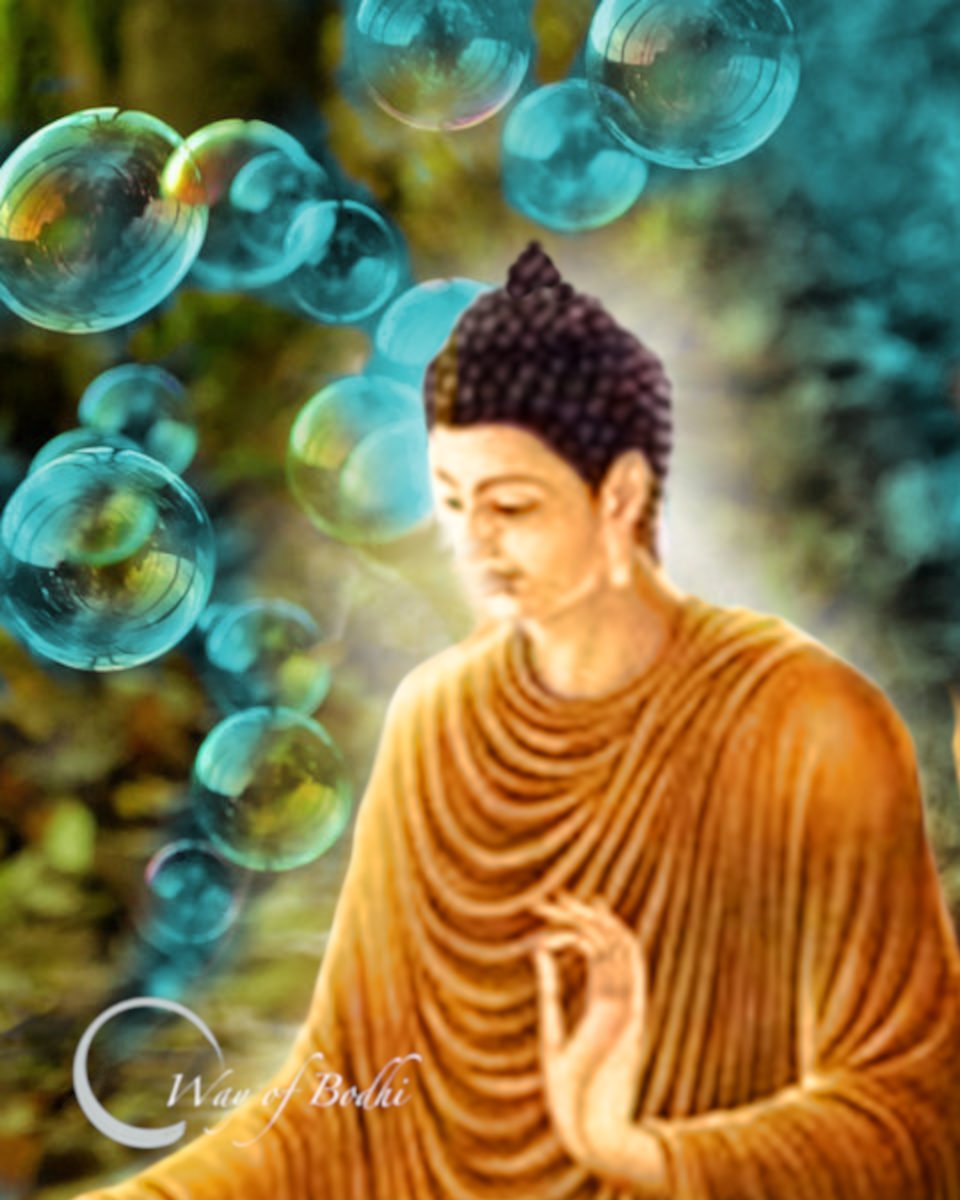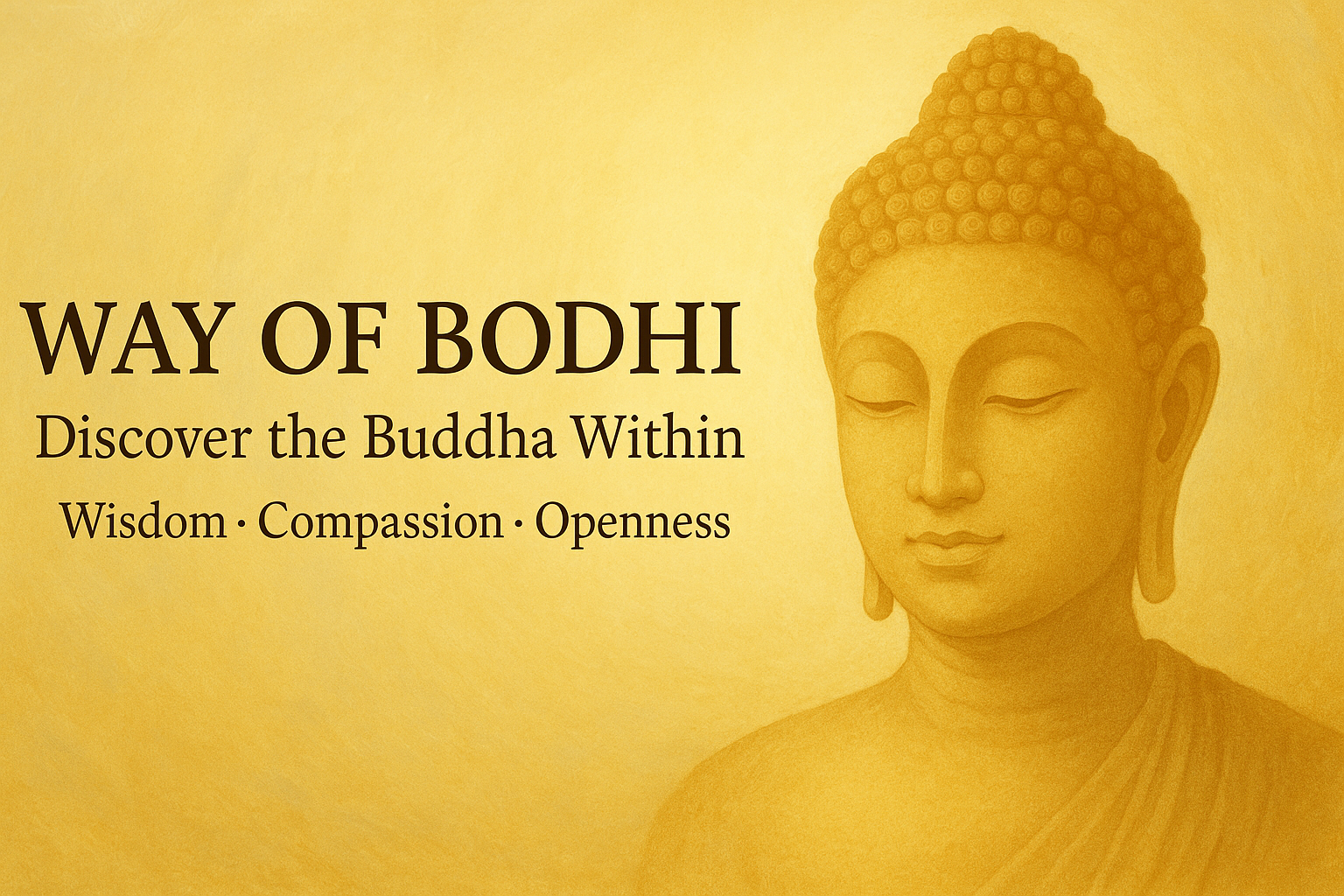This Moment – The Delight in this Day of Excellence
(Being in the now, a commentary to Bhaddekaratta Sutta)

The door to peace and wisdom that the Buddha showed is not in tomorrow and not after death. It is here, now, at this very moment. The present moment is the only way for us to be in contact with reality. The present, this moment, comes between the past and the future without abiding for even a moment. Yet, in this seemingly little moment is the expansive openness! This very moment opens up vast possibilities.

On one occasion, while residing at the Jetavana in Sravasti, the Buddha said to his disciples,
“O Bhikkhus, I shall teach you how one can delight in total excellence this very day. Please pay close attention and take to heart …
May you not follow after the past!
May you not keep longing for the future!
The past has ceased to exist.
And, the future has not yet arrived.
The phenomena of the present,
Discern those clearly on the spot!
Being unshaken and without being drawn along,
That is how one develops with this knowledge.
Today is the day to work ardently,
Who knows, death may strike tomorrow!
For there is no bargain at all
With the mighty army of death!
Whoever lives thus, ardently,
And tirelessly, day and night,
Takes delight in a day of excellence,
Thus proclaims, the sage who attained peace.”
-the Buddha (from Bhaddekaratta Sutta)

Commentary
Sometimes we remain lost in the past, in grief about the losses of yesteryears. Sometimes we find pleasure in the sweet memories of the departed time. And, often, we remain in deep anxiety now itself by imagining the losses and miseries that may come in the far future. What more, the present is wasted as we often sink into colorful daydreams about the future. At other times, we make the present moment utterly stressful by engaging in comparisons of the past and future. Thus, we fill every moment with the baggage of the past and the anxieties about the future.
As we follow after the past or keep yearning for the future, what we miss are the tremendous possibilities of the present. The fantasies about the past and future fill the mind. Nevertheless, these fantasies have little to do with the reality of today. Yesterday will never be a reality again. And, tomorrow has not become a reality yet. So, there is no surety that what we imagine today about tomorrow will end being tomorrow’s reality.
The possibilities that remain concealed
If you want to build a better tomorrow, the effort needs to be made at this moment. Be right here, and observe this very moment with a calm and clear mind! The immense beauty of this moment is then revealed! A fresh view of the world is revealed as we overcome the flaws in our way of observing the world – that of looking at the present through the concepts of past and future. And a fresh view of the world is revealed. Furthermore, we can build a better tomorrow through the possibilities that this moment presents.
The beauty, peace, and possibilities of the present! Alas, it had been concealed by our fantasies regarding the past and future! We had been wasting the great potential of the present moment as we kept on yearning for the future with craving, worries, and anxieties.
Let us be cognizant of this fact. When we engage in the imaginations about the future, it is not those imaginations that go forward to create the future. It is the mind that works. The mind is in worries, anxieties, and weariness as it is drawn along and perturbed with these imaginations. And, this mind of the present moment leads to the future. Hence, a clear and calm mind of wisdom is the key to making a better future.
The door to peace and wisdom
The door to peace and wisdom that the Buddha showed is not in tomorrow and not after death. It is here, now, at this very moment. The present moment is the only way for us to be in contact with reality. The present, this moment, comes between the past and the future without abiding for even a moment. Yet, in this seemingly little moment is the expansive openness! This very moment opens up vast possibilities.
Dharmas of this moment
So, pay close attention to the dharmas of the present. Here, dharma (‘dhamma’ in Pali, ‘dharma’ in Sanskrit) means whatever appears in our experience (i.e., all phenomena). Dharmas include all that we experience through the five senses. It also includes the forms that arise in mind, the sensations of pain and pleasure, thoughts, emotions, etc.
When we think of the past or the future, that thought itself is a dharma (phenomenon) of the present. But its content, the mental form, is only our present-day imagination about the past or future. Since that is a mere concept, it is impossible to have direct knowledge about the past or future by penetrating that imagination. However, that is what we usually end up doing. We remain almost ignorant about the present phenomenon of ‘thinking’. Instead, we immerse ourselves in its content, the imagination, as if it were reality. To have direct knowledge, we need to become mindful of the very process of thinking.
We need to watch. Where does the thought come from? How does it abide? To where does it vanish? That is what we should be watching closely, and not just the content of the thought.
Sensory perceptions are also direct experiences of this moment. Thus, those are the dharmas of this moment. So too are the momentary rising and falling of pain and pleasure, emotions, and all states of mind. That is where we need to attend to instead of being lost in the content of the thought. Watch the sensory perceptions (including the perceptions of our own body), feelings, emotions, thoughts, and various states of mind. Thus, we can gain a clear and profound understanding of their nature and their causal relationships.
A clear state of mind to watch the present
To effectively pay close attention to the momentary movements and changes of the sensory experiences and mental processes, the mind must be calm and free from the usual torrent of distractions. At the same time, the mind must be clear, zealous, and responsive. Let us take an example. We can clearly see the pebbles and the play of tiny fishes at the bottom of a clear lake when its surface is free of ripples. That clarity will not be there if wind causes ripples or if the algae cover the surface. Likewise, when the mind is clear, we can watch and understand our own reality and the world’s reality with its momentary changes. But, the ripples of agitation and the algae of laziness usually affect that clarity.
Being drawn along by a momentary experience, we may slip away from being in the now. As that experience vanishes into the past, we too end up following it into the past. Thus, before we notice, we would have ended up recollecting the past than watching the present. We need to overcome this tendency. Without getting stuck to any dharma (phenomena experience), without being drawn along into the forgone time, let the mind stay right in the present! Let us be mindful of the present, without any emotional turmoils, without jitteriness, and without weariness!
Special insight
Genuine wisdom does not come through speculative philosophies, doctrines, or grandiose imaginations. Through the simple process of seeing this moment directly, we can gain wisdom about ourselves and the world. The answers to many profound questions such as, ‘what am I?’, ‘how do pleasure and pain arise?’, ‘what is the relationship between oneself and the world?’, ‘what is the nature of mind?’, etc., lie at this moment. Though this moment passes quickly between the past and the future., here is the wisdom that matters. Here is the special insight (in Sanskrit, Vipassana / Pali, Vipassana). There is a vast ocean of direct knowing right at this moment. As one travels through the various vehicles (yana) of the Buddhist path, one gets to realize the deeper realities of this moment.
Right now, right here, is the moment to cultivate the mind through such direct knowing. It is at this moment that we can create a better future. With a clear mind, by going beyond the illusion regarding the Self, we can recognize the wisdom of this moment. Thus, we can use this moment meaningfully. That is how a better tomorrow can be created, and not by immersing ourselves in the imaginations about tomorrow.
A day of total excellence
Death is certain for all those who are born. But the time of death is the most uncertain. Who knows, death might strike tomorrow! While going to bed today, how could we be sure that we will be alive to wake up with the same body tomorrow! After an out-breath, if the in-breath does not follow, this life is over. This reality of life is so fleeting. When death strikes, we can’t win by arguing with death. Let alone tomorrow, the very next moment is so uncertain!
To be aware of this fact about the uncertainty of life does not imply that we need to spend our days in deep fear. Instead, quite peacefully, let us be totally in the now. To be in the now does not mean to hold tightly to the experiences of this moment. Instead, let us simply open up to the expanse of this moment with a clear mind. That too, without any tightness and with no clinging to any experience of this transitory moment.
A person who thus remains in the present moment, day and night, with a clear and zealous mind, will have no fear of death. Whether there is a tomorrow in this body or not, this very day will be excellent. The choicest seed for tomorrow would have been sown naturally in that total excellence of today. Thus taught the Buddha, the One Thus Gone, the wise sage, who opened the door of this moment, who walked this earth with simplicity and peace.
May all be auspicious!
-Prabodha

For this article in other languages – Malayalam Post
- Turning of the Wheel of Dharma - November 26, 2024
- Compassion – The Profound Stirring That Overcomes Passivity - November 21, 2024
- This Moment – The Delight in this Day of Excellence - June 6, 2021

